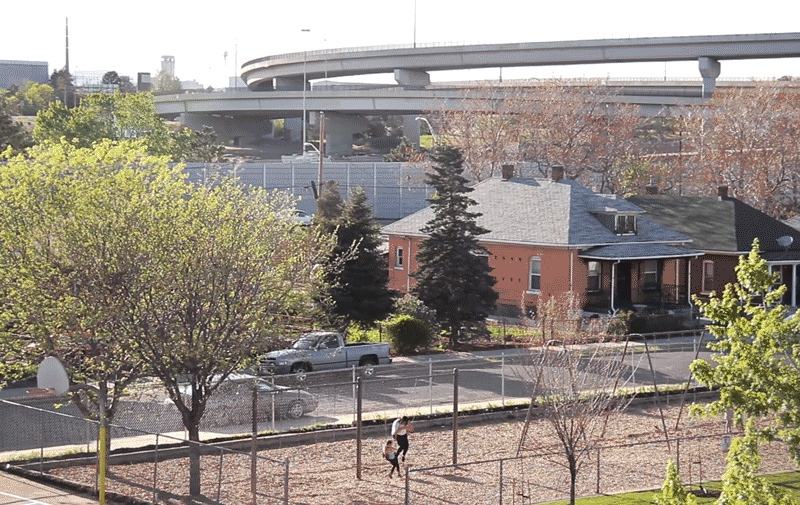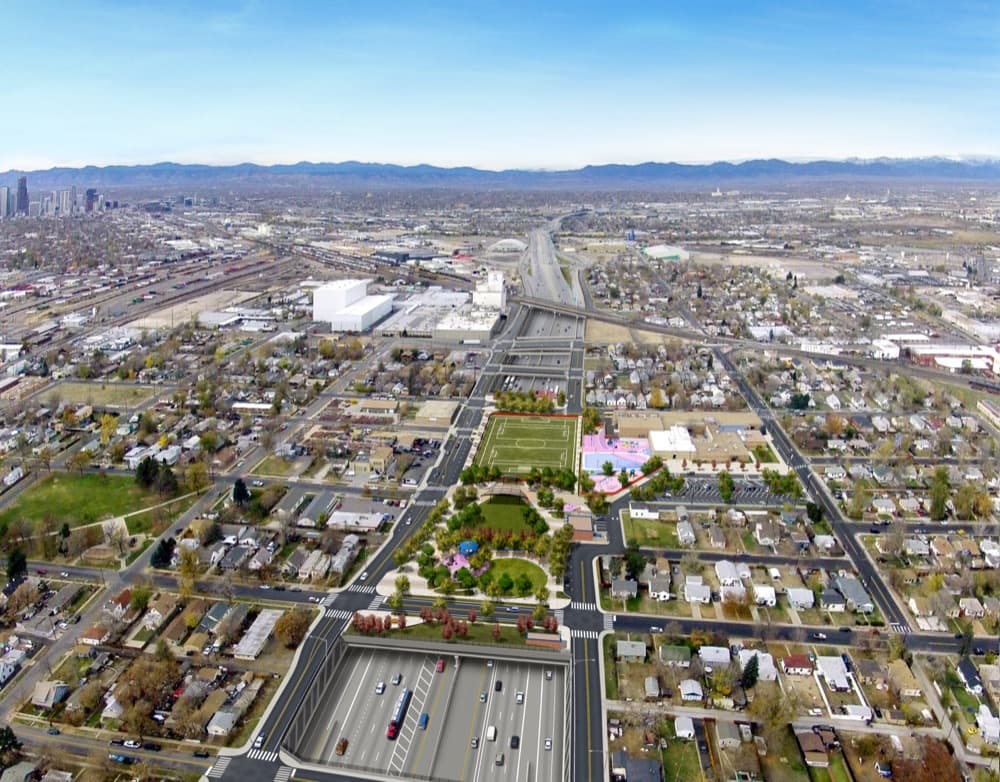
The Congress for New Urbanism's 2017 Freeways without Futures report names and shames 10 U.S. urban highways that represent a "chance to remove a blight from the physical, economic, and environmental health of urban communities."
"Their intended benefits have not justified the tragic consequences, but converting these highways into human-scaled streets offers a chance to begin repairing the damage," the report reads. In other words, these highways should come out and be replaced by surface streets that better serve the adjacent communities.
And I-70 through Denver made the list.
This would be the same stretch of road where the Federal Highway Administration just granted approval to the Colorado Department of Transportation for a $1.2 billion expansion that's been more than a decade in the making. Opponents are trying to figure out their next steps, but they don't plan to accept the record of decision quietly.
The arguments against I-70 that appear in the report will be familiar to anyone who has been following the ongoing debate about the expansion, which will require the destruction of 56 homes and 18 businesses in Elyria-Swansea. Namely, it exacerbates the historic injustice and disproportionate economic and social impact of building the highway through low-income, minority neighborhoods in the first place.
The report endorses the proposal to turn I-70 into a boulevard.
"A group called Unite North Metro Denver has a better proposal: Reroute interstate traffic to the north, and redesign I-70 as a bike- and pedestrian-friendly boulevard. Such a plan would cut noise and air pollution while bringing new investment opportunity to neglected neighborhoods. Furthermore, the boulevard would cost less, open up developable land, and reunite areas that have been blighted by the highway."

CDOT Executive Director Shailen Bhatt has said that plan would put enormous truck traffic onto city streets because of all the businesses that located along the I-70 corridor. It's been a non-starter with CDOT.
The Congress for New Urbanism's goal is to "help create vibrant and walkable cities, towns, and neighborhoods where people have diverse choices for how they live, work, shop, and get around."
You can read the entire report and see the rest of the list here.
The report notes that under President Barack Obama's Secretary of Transportation Anthony Foxx, support for removing highways from urban areas has gained momentum. However, the record of decision that gives a green light to the I-70 expansion was issued on Foxx's last day in office, and it seems even less likely that a Donald Trump administration would frown on highway expansion.












